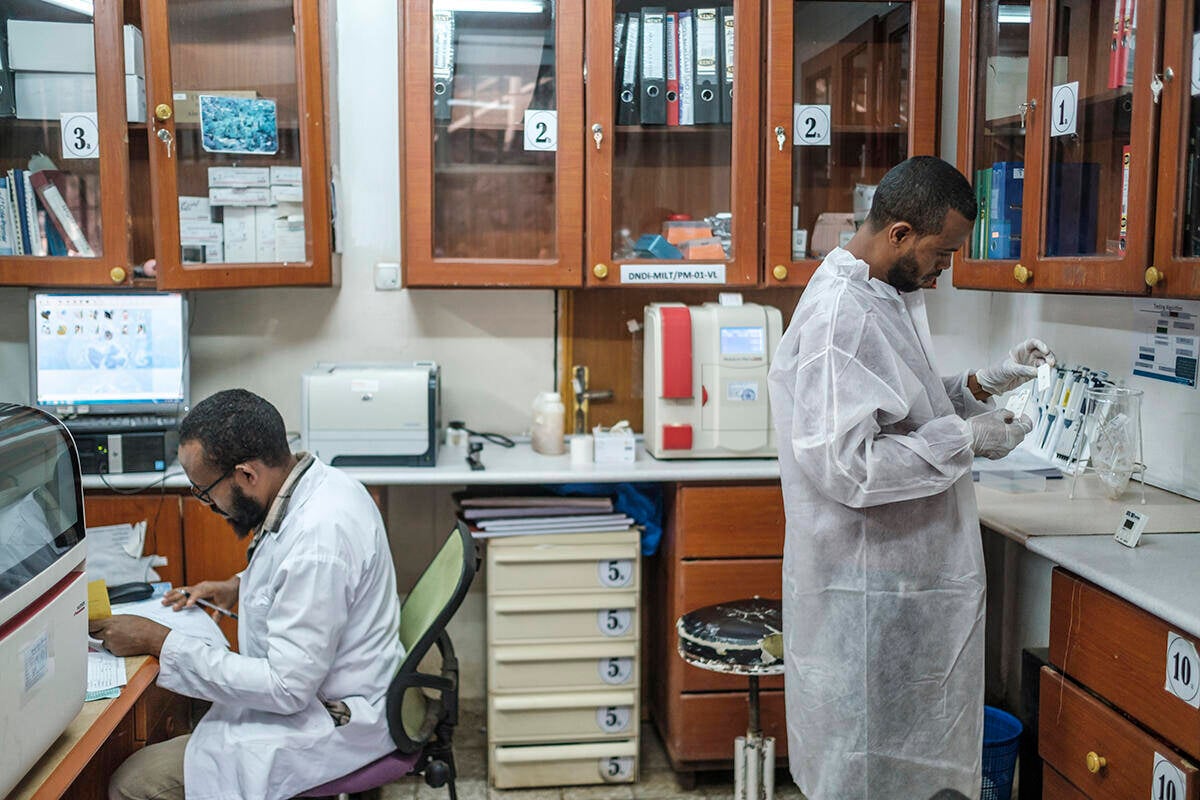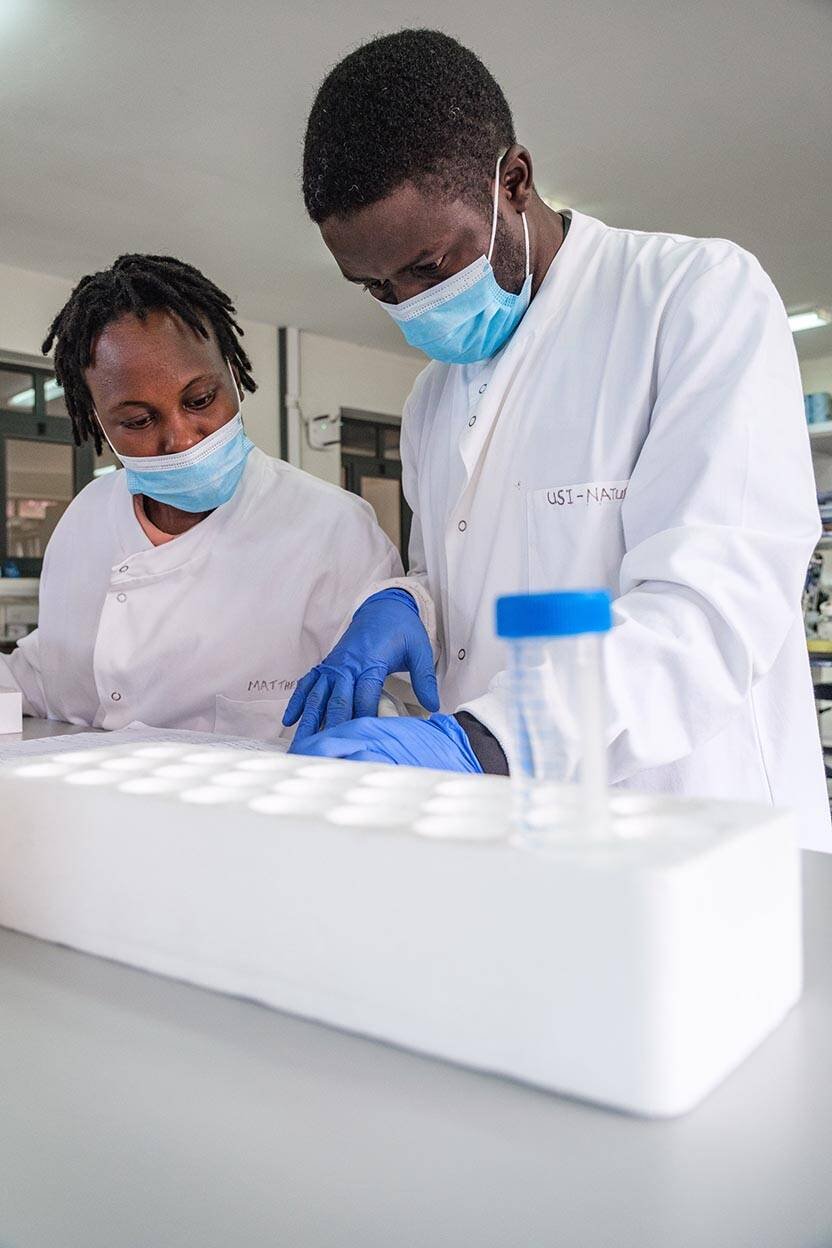
scroll down
The Epidemiology and Biostatistics training programme, which concluded in 2024, has trained 150 individuals in key skills in infectious disease surveillance and public health protection.

The TEBWA programme, led from Benin, has also been working to strengthen the impact of its work. It has created a platform to support ongoing networking across programme alumni. Fellows also attended a regional workshop held in Benin in 2023 and joined a new network, the West and Central Africa Biostatistical Modelling Consortium (WesCAB), established as a result.
Furthermore, three fellows were awarded scholarships for further work in their area of interest and one fellow has begun a PhD at Moi University, Kenya. Thanks to the TEBWA project, the London School of Hygiene and Tropical Medicine, UK, and the University of Abomey-Calavi, Benin, have strengthened their collaboration and are exploring ways to support some of the TEBWA fellows to pursue PhDs.
Women alumni of these programmes are also eligible to apply for the PhDs available through EDCTP2-funded training programmes at EDCTP regional Networks of Excellence.
Several programmes concluded with a symposium, enabling their fellows to communicate the results of their research projects and discuss the impact of their training.
The programmes have also been conducting follow-on activities to build upon the progress made. For example, the PREP-EPID consortium, focused on francophone countries, undertook an advocacy mission to Madagascar and Chad, to highlight the programme’s successes and to engage with national decision-makers and representatives from global agencies about health security, outbreak preparedness and training needs. This led to the drafting of a memorandum of understanding between the African Institute of Public Health (IASP) and the Ministry of Health of Chad.
In addition, a review and brainstorming session dedicated to epidemiology training was organised with the Ministry of Health of Burkina Faso. The event included a panel discussion chaired by the Minister of Health’s Secretary General, which involved six graduates from the PREP-EPID programme who now serve in various public health roles.
A survey was conducted towards the end of the scheme, to collect data from fellows and hosting institutions. Fellows expressed high levels of satisfaction with the training programme and the quality of training. Most were applying their new knowledge in their daily work and 97% would recommend the training to others.
Hosting institutions were similarly positive about the scheme. Most of the fellows had returned to their original positions or were working in public health, and they were felt to be making important contributions to public health practice. The survey also identified some areas where a similar programme could be improved.
Overall, the scheme has made a significant contribution to the development of workforce capacity in the region, strengthening preparedness and response to disease outbreaks.
Launched in 2020 and organised in partnership with the Africa Centre for Disease Control and Prevention (Africa CDC), the Epidemiology and Biostatistics training programme was designed to build capacity in the key skills needed to identify and track known and emerging infectious disease threats affecting sub-Saharan Africa.
Through the initiative, ten consortia were funded, which collectively trained 150 fellows. The consortia spanned 42 institutions in sub-Saharan Africa plus nine in Europe, offering high-quality teaching and field experience to fellows.
A new cohort of epidemiological specialists